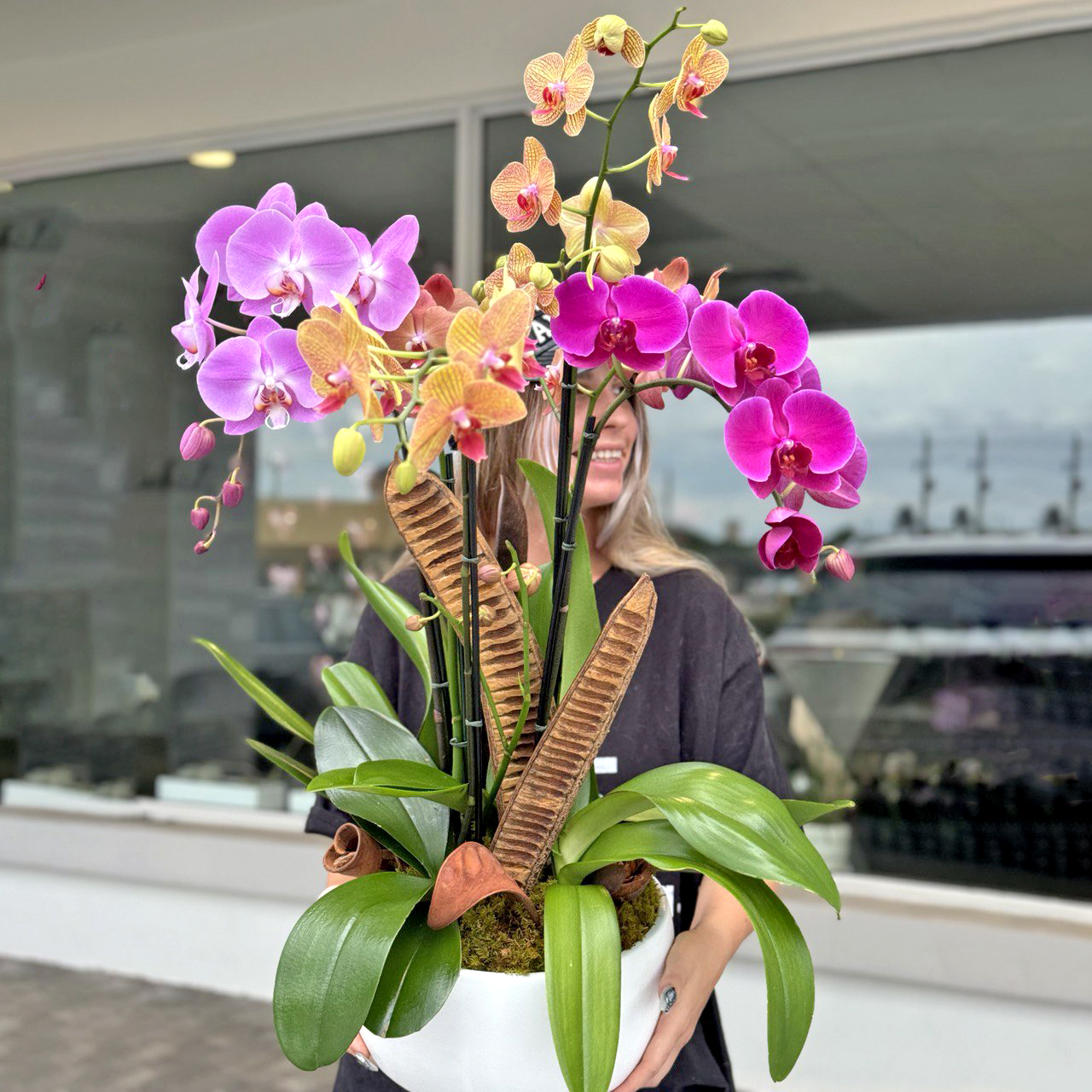Introduction to Orchids and Cat Safety
Orchids are renowned for their extraordinary beauty and diverse range of varieties, making them a popular choice for houseplants among gardening enthusiasts and casual plant owners alike. With their elegant blooms and long-lasting flowers, orchids can enhance any indoor space, creating a vibrant atmosphere that many find soothing and inspiring. However, as the number of households with pets, particularly cats, continues to rise, so too does the concern regarding the safety of these ornamental plants.
Orchids boca raton https://vivaorchids.com/
Understanding plant toxicity is essential for pet owners, especially those with curious or playful cats. Cats, known for their inquisitive nature, may inadvertently nibble on or play with houseplants, raising valid concerns about the potential risks associated with certain species. While many houseplants are entirely safe for feline companions, others may pose health risks, leading to the importance of being informed about which plants are best suited for homes with pets.

As such, the question arises: are orchids toxic to cats? This inquiry is of significant relevance to pet owners who wish to maintain a safe environment for their furry friends. By investigating the chemical composition of orchids and understanding which specific types may be harmful, cat owners can make informed decisions regarding the inclusion of these stunning plants in their homes. This caution not only ensures the well-being of cats but also allows pet owners to enjoy the aesthetic pleasures of orchids without anxiety.
As we delve deeper into this topic, it becomes crucial to evaluate both the beauty of orchids and their potential impact on cat health. Understanding these dynamics will empower pet owners and guide their choices regarding plant selection, ultimately leading to a harmonious coexistence of cats and the stunning orchids that adorn their living spaces.
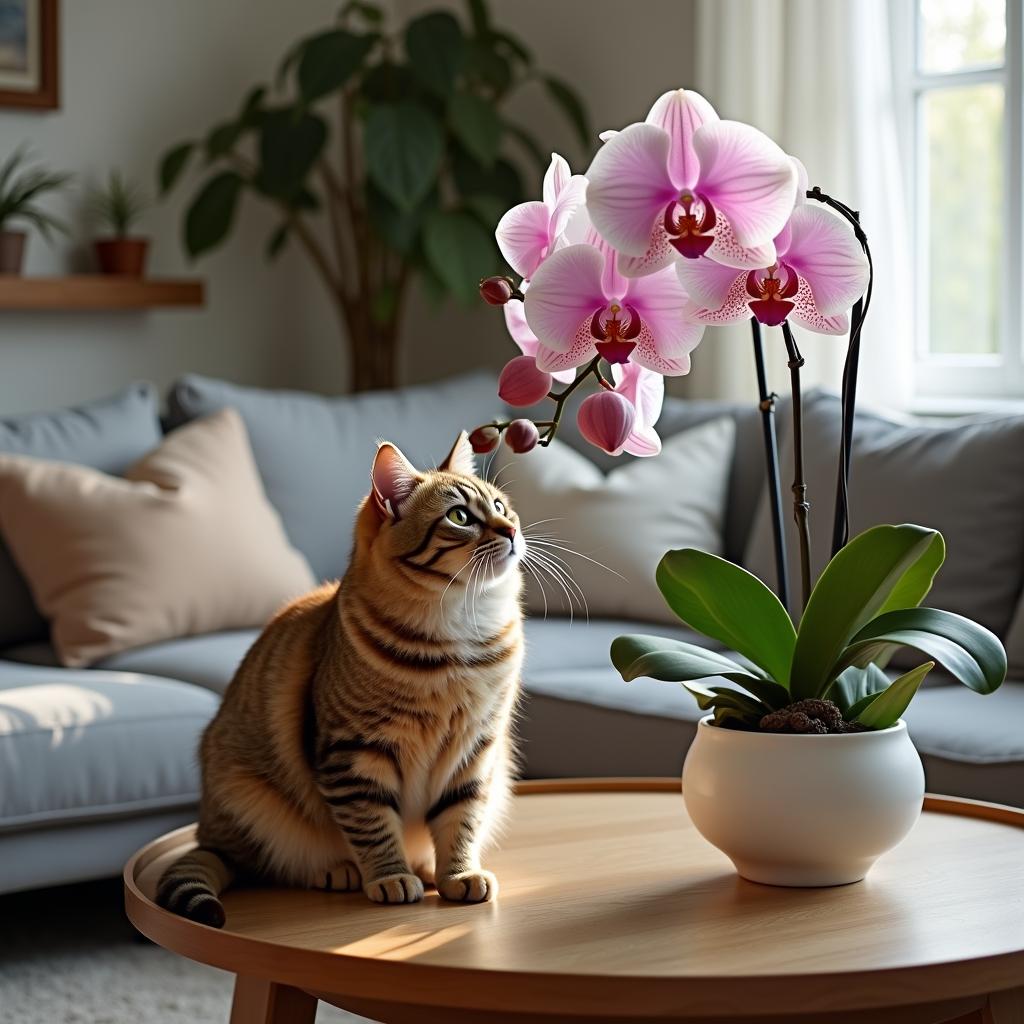
Boca raton flowers https://vivaflowers.com
The Toxicity of Orchids: Fact or Myth?
The question of whether orchids are toxic to cats has persisted among pet owners for years. To clarify this issue, it is essential to differentiate between various orchid species and consult established veterinary resources. The Phalaenopsis orchid, commonly known as the moth orchid, is one of the most popular varieties. According to veterinary experts, this type of orchid is generally considered non-toxic to cats. Similarly, the Dendrobium and Cattleya orchids also fall into this category, with no substantial evidence indicating that they pose a threat to feline companions.
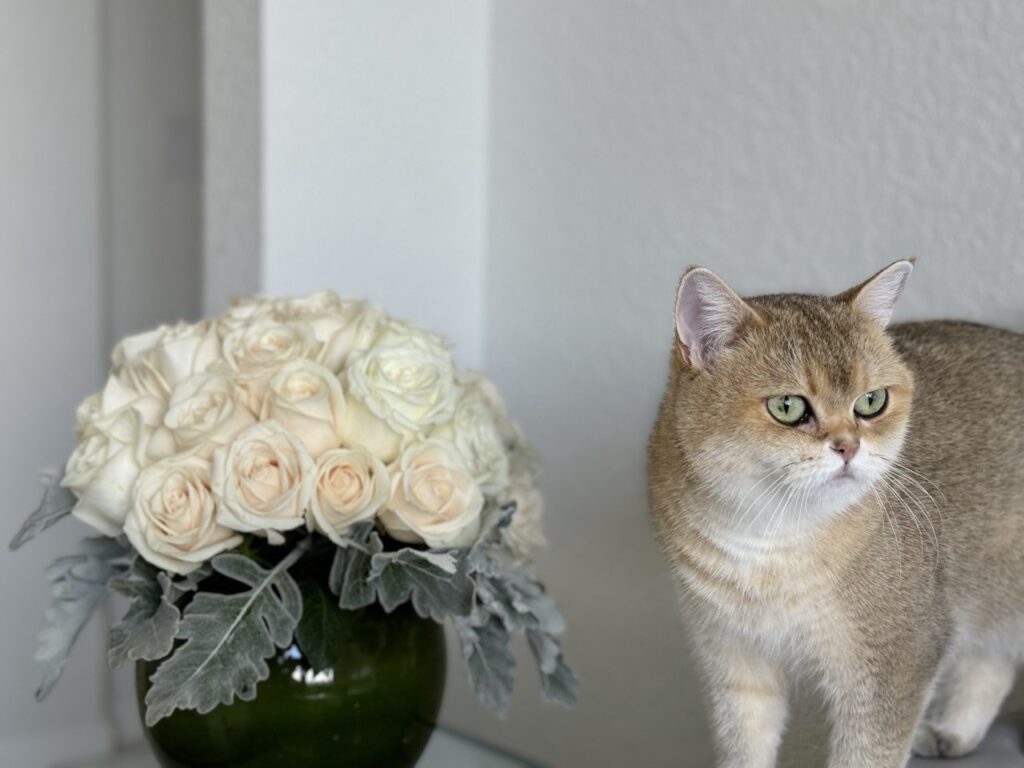
However, despite the consensus that most orchids are safe for cats, it is crucial to understand that individual reactions may vary. While ingestion of orchid leaves or flowers may not lead to toxicity, some cats might experience mild gastrointestinal upset if they chew on these plants. Symptoms could include vomiting or diarrhea, which, although not life-threatening, could cause concern for pet owners. It is advisable to monitor your cat’s behavior around any plants to ensure they do not develop a habit of chewing on non-toxic flora.
Furthermore, it is important to address common myths related to orchid toxicity. Many individuals mistakenly believe that the beautiful blooms of the orchid might contain harmful chemicals or be harmful to household pets. This misconception has arisen due to the vibrant colors and exotic nature of orchids, which can make any plant seem potentially dangerous. However, reputable sources such as the ASPCA have classified most orchids, including Phalaenopsis, Dendrobium, and Cattleya, as non-toxic to cats. Nevertheless, it remains wise to exercise caution and ensure that orchids and other houseplants are placed out of reach of curious pets.
Signs of Orchid Ingestion in Cats
Understanding the signs of orchid ingestion in cats is crucial for pet owners who have these plants in their homes. While orchids are generally considered non-toxic to cats, it is still important to monitor for potential adverse reactions. If a cat ingests parts of an orchid, there are several clinical signs that may indicate a problem. Common symptoms include vomiting, which may occur shortly after ingestion, and diarrhea, which can lead to dehydration if not addressed promptly. Lethargy is another critical sign; a cat that is usually active may become unusually quiet or reluctant to move around.

In addition to these symptoms, watch for changes in appetite. A cat that has ingested an orchid might refuse to eat or may exhibit a decreased interest in food. Pawing at the mouth or excessive drooling can also occur, suggesting that the ingestion may have caused some discomfort or irritation. Behavioral changes, such as increased hiding or altered social interactions with humans or other pets, can be further indicators that something is amiss.
It is essential for cat owners to monitor their pets closely after exposure to orchids. Any sudden or unusual behavior should prompt vigilance. Should these symptoms occur, especially if they are severe or lasting, it is advisable to consult a veterinarian without delay. Timely veterinary intervention can ensure that the cat is assessed and treated appropriately, minimizing any potential health risks associated with ingestion. Through understanding the signs of orchid ingestion, pet owners can take proactive measures to ensure their cats remain healthy and safe in environments where these beautiful plants are present.
Safe Practices for Cat Owners with Orchids
For cat owners who appreciate the beauty of orchids yet remain concerned about the health of their feline companions, implementing safe practices is crucial. First and foremost, placing orchids out of reach is an effective strategy. Consider positioning these plants on high shelves or using hanging planters, thereby preventing curious cats from accessing them. Creating physical barriers not only protects the orchids but also reduces the likelihood of ingestion or damage caused by playful paws.
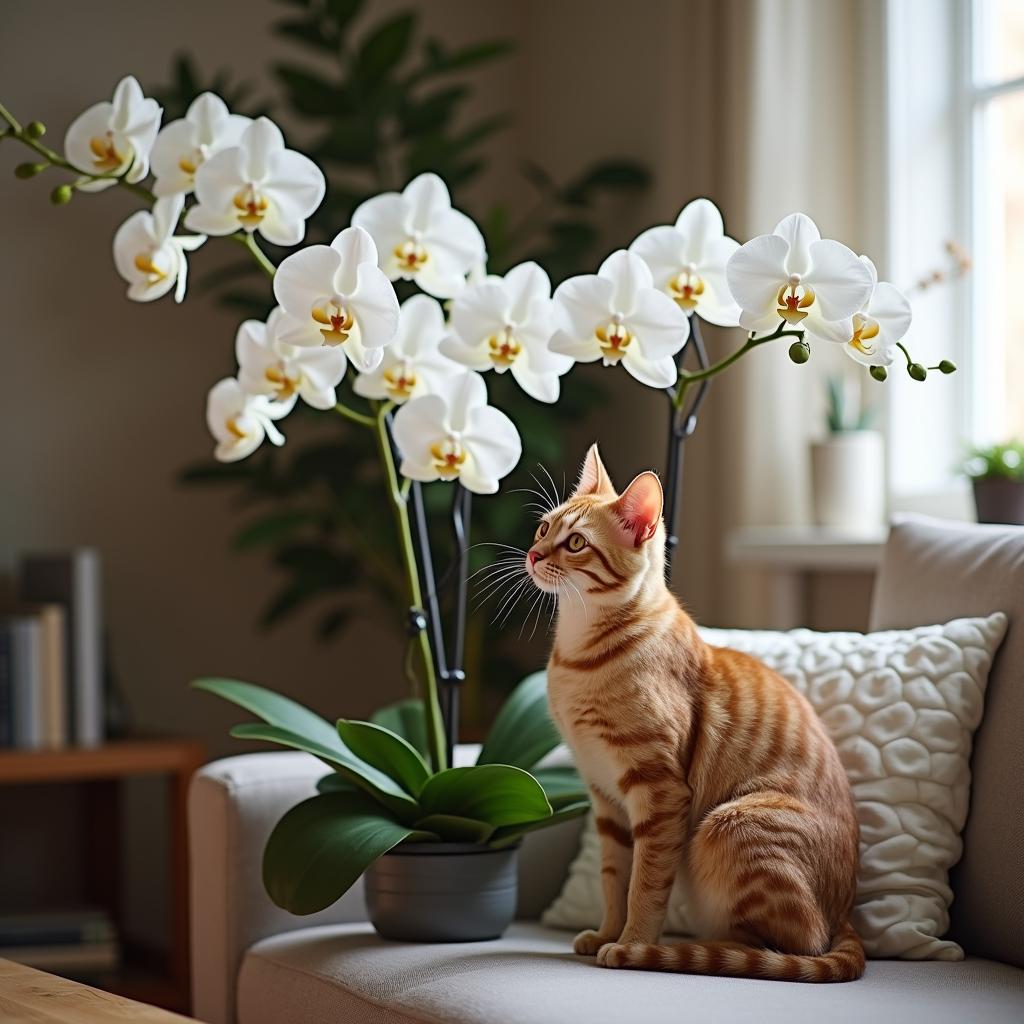
Additionally, selecting cat-safe plants can significantly enhance a household’s greenery without the associated risks of toxicity. Several non-toxic options such as spider plants, Boston ferns, and bamboo palms can coexist harmoniously alongside orchids. By choosing these safe alternatives, cat owners can create a vibrant indoor oasis while ensuring environmental safety for their pets.
Another essential practice involves monitoring the behavior of your cat around your plants. If you notice any signs of interest, such as chewing or pawing at the orchids, it may be helpful to redirect their attention with cat-friendly toys. This approach reinforces safe interaction while keeping the plants intact. Furthermore, educating yourself about the specific varieties of orchids is beneficial since not all species carry the same toxic potential. While Phalaenopsis orchids are considered non-toxic, other varieties may pose threats, underscoring the need for careful selection.
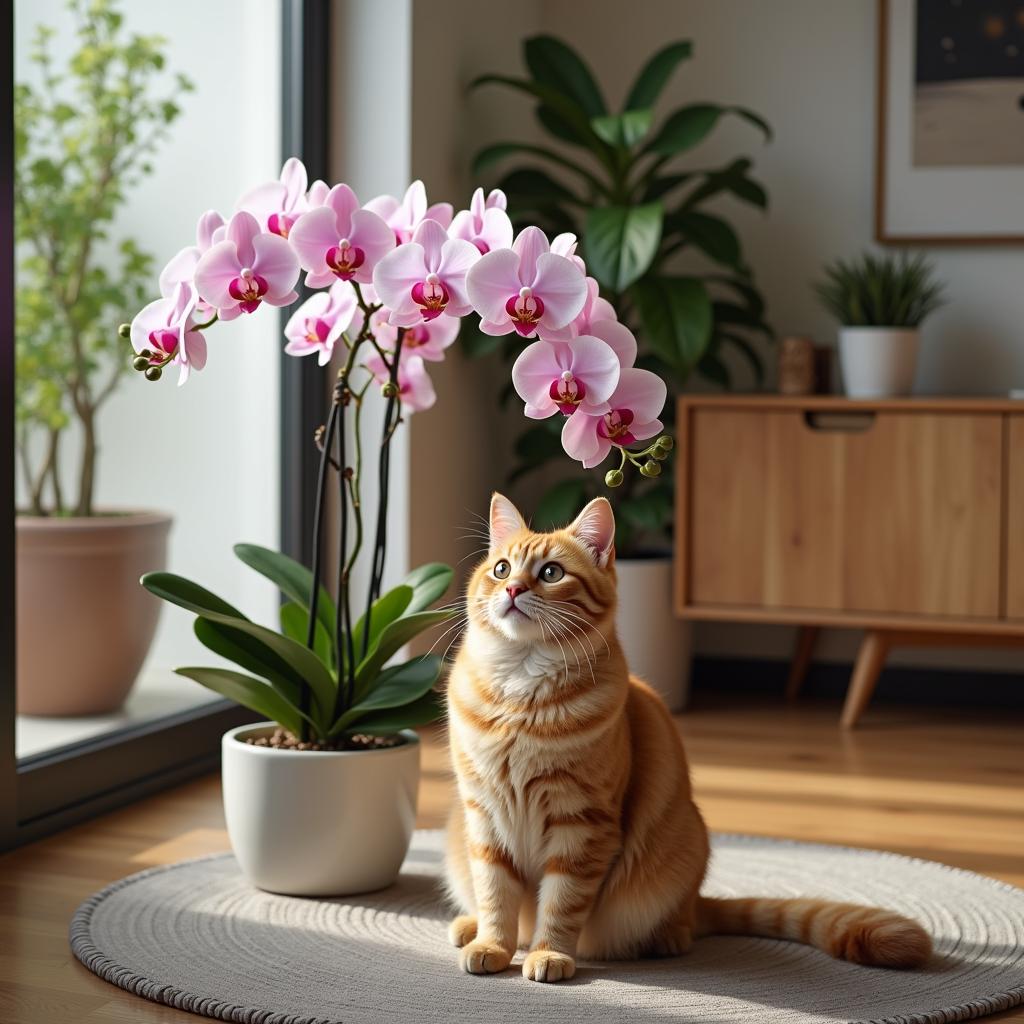
Finally, creating a safe environment is paramount for both cats and orchids. Consider implementing a designated area for your plants, separate from frequently trafficked zones within your home. This will not only safeguard the orchids from disturbances but also provide a secure space for your cat. By adopting these best practices, cat owners can enjoy the aesthetic appeal of orchids while ensuring that their furry friends remain healthy and safe.

